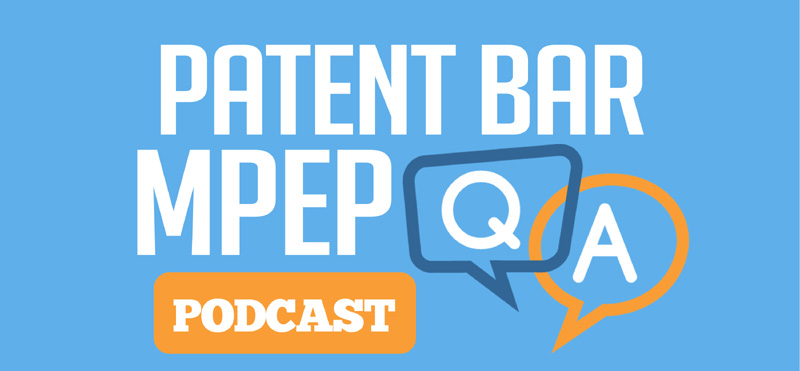
Podcast: Play in new window | Download
Subscribe: Apple Podcasts | RSS
Question:
When is a rejection on the ground of lack of utility appropriate?
Answer:
A rejection on the ground of lack of utility is appropriate when:
- it is not apparent why the invention is “useful” because applicant has failed to identify any specific and substantial utility and there is no well-established utility, or
- an assertion of specific and substantial utility for the invention is not credible.
Chapter Details:
The answer to this question can be found in chapter 700 of the MPEP. This chapter covers Examination of Applications.
The answer is from the 9th Edition, Revision 08.2017. Depending on future changes to the MPEP, the question and answer may or may not be applicable in later Editions or revisions.
Section Summary:
This question and answer comes from section 706.03(a) of the MPEP. The following is a brief summary of section 706.03(a).
706.03(a) Rejections Under 35 U.S.C. 101
This section covers rejections under 35 U.S.C. 101. Patents are not granted for all new and useful inventions and discoveries. The subject matter of the invention or discovery must come within the boundaries set forth by 35 U.S.C. 101, which permits a patent to be granted only for “any new and useful process, machine, manufacture, or composition of matter, or any new and useful improvement thereof.”
Topics such as double patenting, subject matter eligibility, utility, and the improper naming of an inventor are discussed.
